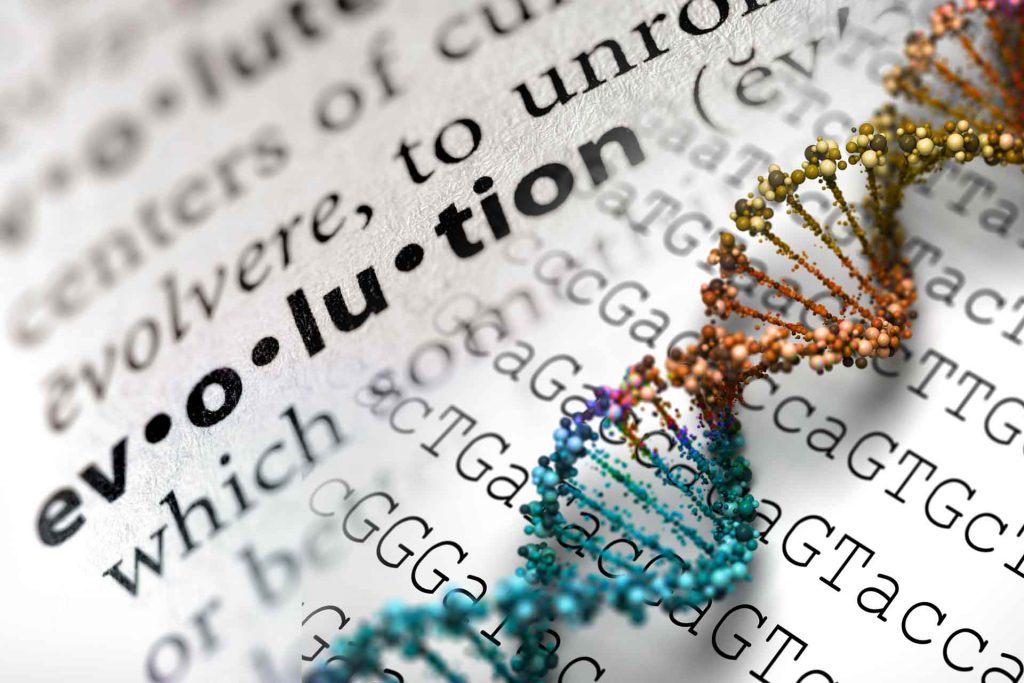Blog / Video #2
We can have the right reactions to things, but often at the wrong time. Sometimes we call this anxiety or depression, or a host of other names depending on how it shows up, but beneath the labelling of different symptoms, all of this has one thing in common; the right reaction at the wrong time. So why has it gone so wrong?
In a nutshell, it is because we have evolved to survive, not to be happy. It’s unavoidable, I’m afraid and here’s why. Let’s say you had two tribes and one of them was really happy a lot of the time and the other one was really good at dealing with threat, which one would do better? Well, when things were going well, the happy tribe would have a good time, and this might even make them live a bit longer. However, when things go wrong, the tribe with the better response to threat would avoid premature death, thus living much longer.
In evolution, each organism really only has one task to ensure success; to stay alive long enough to have children and then to keep these children alive long enough so that they can have children. If your species does that, then it will eventually have more and more of it on the planet, which (as measured by evolution) is success.
So organisms which are good at dealing with threat survive evolution and natural selection better. And these are the organisms which you now see around you on this planet. You are a very successful one. How did you get here?
Evolve to survive not to thrive
Imagine a shark swimming up to a school of fish and they don’t react. The shark just eats what he wants and then off he goes. Maybe that’s a good life for a fish. It’s super chilled whether it gets eaten or not, and nobody can live forever, right? But then something changed. The accepted wisdom from fossil records is that about 100 million years ago, something called a jawless fish developed a new way to deal with predators.
Randomly, one of the jawless fish did something different when a predator arrived. Instead of carrying on swimming, it just stopped dead in the water. Sharks, and other predators found their prey by seeing or sensing movement, so this meant that the fish was invisible and survived. And so it grew old and had many little freezing fish. They never got eaten and pretty soon the ocean was filled with fish that the sharks couldn’t see when they approached. They might not have been the happiest fish, but they were the most populous.
Then, randomly, a shark developed the ability to see stationary fish. This changed the whole balance of predation back in that shark’s favour, and so it started to have lots of little baby sharks and then the sea was full of these new sharks. Then the fish needed to adapt to survive, so some of them started to run when the others froze. Bigger ones even fought back if caught. And so it went on, with the sharks adapting to match these defences and the fish having to mount new ones. Next they started to get an early warning system, vigilance, when a shark was even on the horizon.
The good news is that the fish as a species survived, but it does sound exhausting. The super chill fish all died out. They went to a watery grave with a lopsided grin on their jawless faces, happy but dead. Good survivors proliferate. And the humans you share your planet with today are the direct descendants of those fish.
Going back in time
When you become aware of an escalating threat, you go through these evolutionary stages in reverse. You become vigilant, then you run for your life and/or fight for your life, and then, when it all seems hopeless, you freeze. This happens very quickly for very young mammals (like you when you were a baby), because they don’t have much capacity for successful fight or flight. So freeze is quite common, particularly when small.
If an organism survives danger even after it has gone into freeze, then later, when the danger has passed, it will unfreeze. If it does not, then it is this reaction to threat which has frozen into its system that is waiting to come out later.
So if you are anxious today about nothing, it is because you have not yet finished reacting to an earlier threat. And if you are depressed, it is because trying to finish reacting to an earlier threat is so overwhelming that you freeze again. It often surprises people that anxiety and depression are treated with the same antidepressant drugs.
I want you to understand your history. You are the result of successful evolution, designed to survive, but not to thrive. To change that you need to hack your evolution to do things differently.
Fortunately, that is very easy; you do it through education. You’ve just done part of it. Once you understand that the greatest threat you face is not unfreezing your unfinished business, you will be able to make different choices with your biology and restore yourself to health.
You can download this post in a handy 2-page PDF to print and share with friends, family, clients or colleagues. Follow this link to download now.
You can buy a copy of The Invisible Lion now on kindle or paperback from your local Amazon store. Just click here to buy now.


